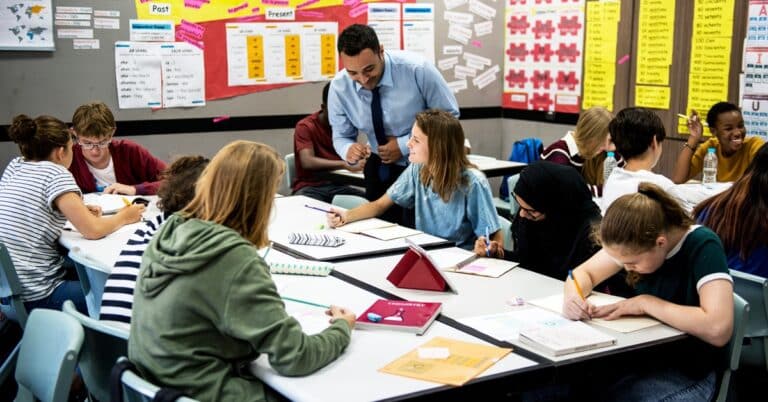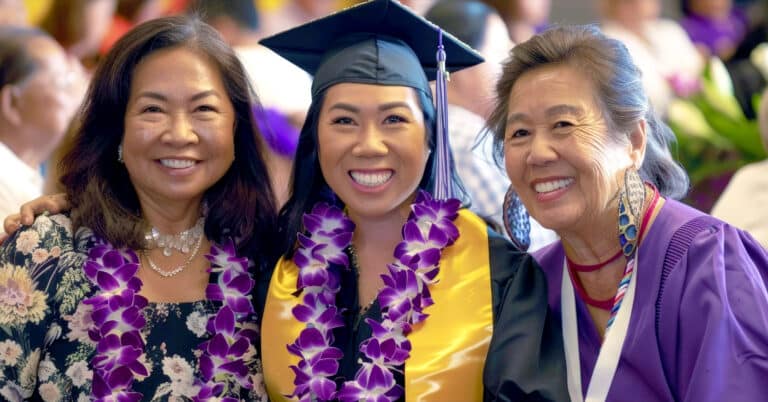What students and communities need from their schools is not static from year to year.
Although some educational imperatives remain consistent—such as the importance of literacy and numeracy—schools and districts are regularly challenged to modify their approach and the ways that they educate and support young people, both as students and as people. Demographic transitions, cultural and political changes, the fate of regional economies, health status and many other factors influence the lives of students and their families, shaping how they perceive and experience school.
A whole child-focused approach to education has the power to transform the lives of students and their families. Through this approach, schools across Ohio are becoming centers of safety and positivity, where students trust that their needs will be honored and cared for, that they will be challenged to be their best selves personally and academically and that they will be supported no matter their background or circumstances.
KnowledgeWorks is committed to building a learning culture where schools, districts, social service agencies, health care providers, community organizations and others work together to ensure that young people in their communities have every opportunity to thrive.
This story is one in a thematic series that highlights the strategic and practical considerations, challenges and success factors that characterize efforts to comprehensively meet the needs of children in and out of the classroom. Centering on the experiences of six districts located in a diverse array of Ohio communities, these stories show what is possible when we care for our students as people while fulfilling the educational mission of our schools.
Never “no.” Always “yes” or “not yet, but we’ll figure it out.”
After their community experienced a rapid socioeconomic shift, leaders in Wickliffe City School District, outside of Cleveland, redeveloped their strategic plan to ensure the district was prepared to provide more comprehensive support services and resources for students and their families. District data correlated this shift with a growing need for district schools to address issues arising from students’ life circumstances in order for them to learn.
The district fully committed to this challenge, adopting the motto “Never say ‘no’; it’s either ‘yes’ or ‘not yet, but we’ll figure it out’” when it comes to finding ways to meet student and family needs. In the face of community and funder skepticism, this determination enabled the district to build a dedicated family resource center that serves as a hub for many of the supports and services the district now provides to students and, crucially, the whole community.
Three Key Lessons from Wickliffe and Alexander Local Schools
- Mutually agreeable and beneficial partnerships among the district, social service agencies, health care providers and community organizations are vital to expanding access to supports and resources. No district can do it alone.
- Don’t take community support as a given. Support and trust from the community, including families of students, must be earned and carefully nurtured.
- Normalizing the availability of support services and resources, from counseling to medical to material needs, in and through schools is vital to increasing both shared ownership and uptake among educators, students, their families and the community.
Bringing every available resource to bear to meet student and family needs
Alexander Local Schools, in southeast Ohio, has focused significant effort and resources to address the comprehensive needs of students and families. In 2008, the district’s low student achievement scores on the Ohio Report Card catalyzed self-reflective conversations among teachers and district leaders about what needed to change.
A shared recognition that many students were not ready or able to learn because of challenging life circumstances inspired the district to launch an initiative that massively increased access to counseling and other support. Through partnerships with social services agencies, and by integrating these agencies on the district campus where all the district’s schools are located, the district has successfully mitigated a major barrier, the need to travel and therefore miss school or work, to accessing support and services. The district also offers basic needs support through its weekend food program, which provides students with meals to bridge the gap from Friday to Monday, and its “Caring Closet” that provides students with toiletries, clothing and other essentials.
In both districts, the impetus to care comprehensively for their students is not solely because it is the right thing to do. It is also understood – among building leaders, educators and the broader community – that these efforts are essential to their educational mission.
Care and support lead to improved learning
In both districts, the impetus to care comprehensively for their students is not solely because it is the right thing to do. It is also understood—among building leaders, educators and the broader community—that these efforts are essential to their educational mission. And they are seeing results. At Alexander Local Schools, test scores have risen by 15% and attendance rates have risen as well. Improved attendance and engagement, fewer behavioral issues, increased academic achievement and higher graduation rates are all testament to the positive impact the districts’ approaches have on academic outcomes for their students.
Get the full story
Ohio’s whole child-focused approach to education has the power to transform the lives of students and their families. Learn how districts in the state:




